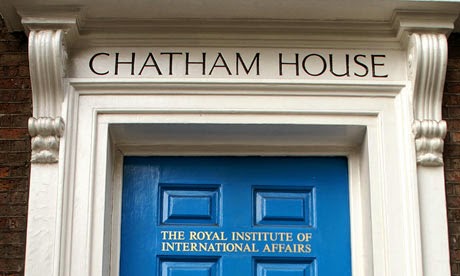2014년 5월 26일 스웨덴 스톡홀름에서 열린 글로벌 인터넷 거버넌스 위원회(GCIG)에 참석했다가 `채텀하우스룰‘이라는 것을 알게 됐다. GCIG 회의에서는 “채텀하우스룰이 적용된다”고 설명을 들었는데 잘 모르다가 회의에 참석해서 알게 됐다.
채텀하우스는 영국의 대표적인 싱크탱크인 왕립국제문제연구소다. 이 연구소의 `룰’이 널리 알려지게 돼 `채텀하우스룰’이라고 부른다.
채텀하우스룰(Chatham House Rule)이란 토론공간에서 자유롭게 생각을 말하고 전하되 참석자들은 외부에 `어떤 직위의 누가 이런 발언을 했다’는 것을 밝히지 않고 토론의 요지는 자유로이 전달할 수 있도록 미리 약속하는 토론방식을 뜻한다.
지금은 영국뿐만 아니라 국제 외교 무대에서 이 채텀하우스룰이 널리 통용되고 있다. 토론 이후 발생할 수 있는 불필요한 논쟁을 줄이면서도 토론의 요지는 분명히 전달될 수 있는 장점이 있는 것 같다. 실제 GCIG 회의에서도 민감한 발언에 대해서는 “채텀하우스 룰이 있으니…”라며 발언하는 패널리스트를 봤다.
회의 내용이 전체 공개 되는 회의의 장점도 있지만 모든 회의를 이렇게 전체공개할 필요는 없다. 그렇다고 폐쇄되면 회의의 요지가 전달되지 않거나 어떤 사람은 발언의 공개를 원하고 어떤 사람은 그렇지 않을 수 있다.
주장이 갈릴 수밖에 없고 추후 전체 합의, 단일한 목소리가 중요한 회의에서는 `채텀하우스룰’을 원칙으로 삼는 것도 좋을 것 같다.
A. In 1927 and refined in 1992 and 2002.
Q. Should one refer to the Chatham House Rule or the Chatham House Rules?
A. There is only one Rule.Q. What are the benefits of using the Rule?
A. It allows people to speak as individuals, and to express views that may not be those of their organizations, and therefore it encourages free discussion. People usually feel more relaxed if they don’t have to worry about their reputation or the implications if they are publicly quoted.Q. How is the Rule enforced?
A. Chatham House can take disciplinary action against one of its members who breaks the Rule. Not all organizations that use the Rule have sanctions. The Rule then depends for its success on being seen as morally binding.
Q. Is the Rule used for all meetings at Chatham House?
A. Not often for Members Events; more frequently for smaller research meetings, for example where work in progress is discussed or when subject matter is politically sensitive. Most Chatham House conferences are under the Rule.
Q. Who uses the Rule these days?
A. It is widely used by local government and commercial organizations as well as research organizations.
A. Yes if you wish to do so.
A. No – the list of attendees should not be circulated beyond those participating in the meeting.
A. The Rule can be used effectively on social media sites such as Twitter as long as the person tweeting or messaging reports only what was said at an event and does not identify – directly or indirectly – the speaker or another participant. This consideration should always guide the way in which event information is disseminated – online as well as offline.
글 : 손재권
출처 : http://jackay21c.blogspot.kr/2014/05/blog-post_31.html



